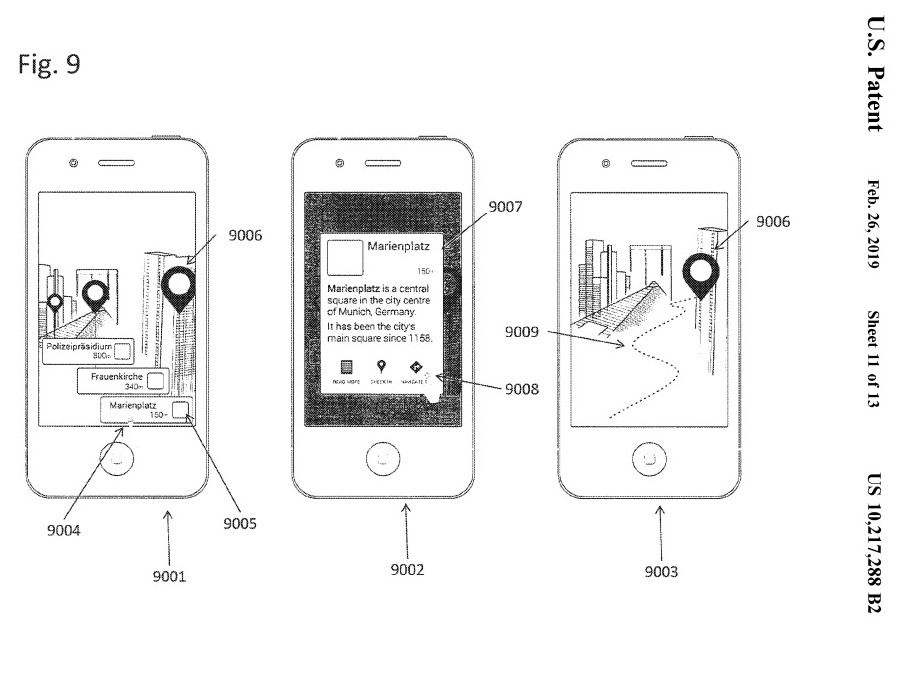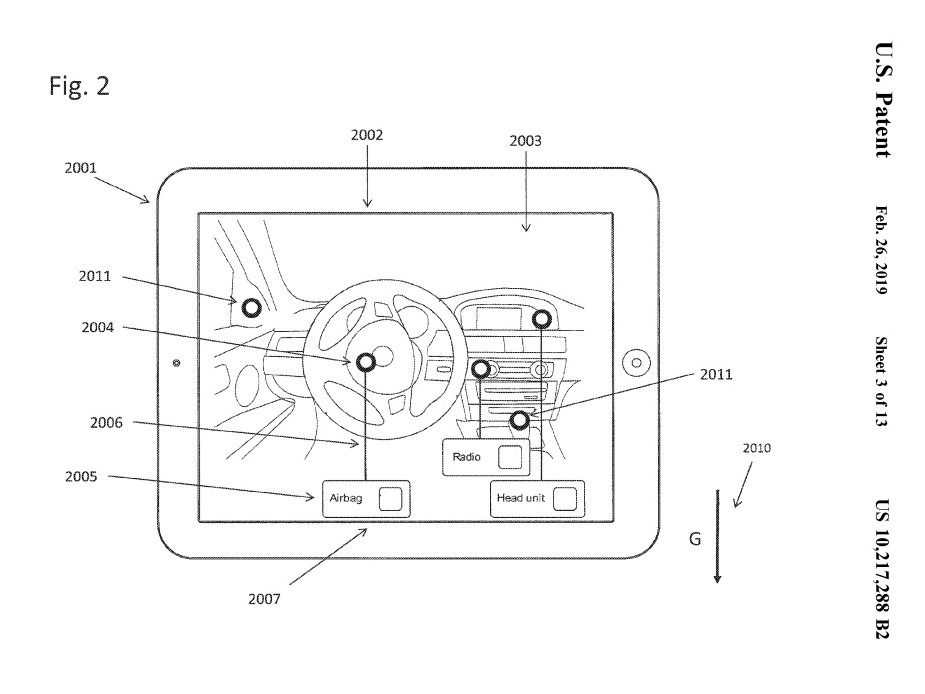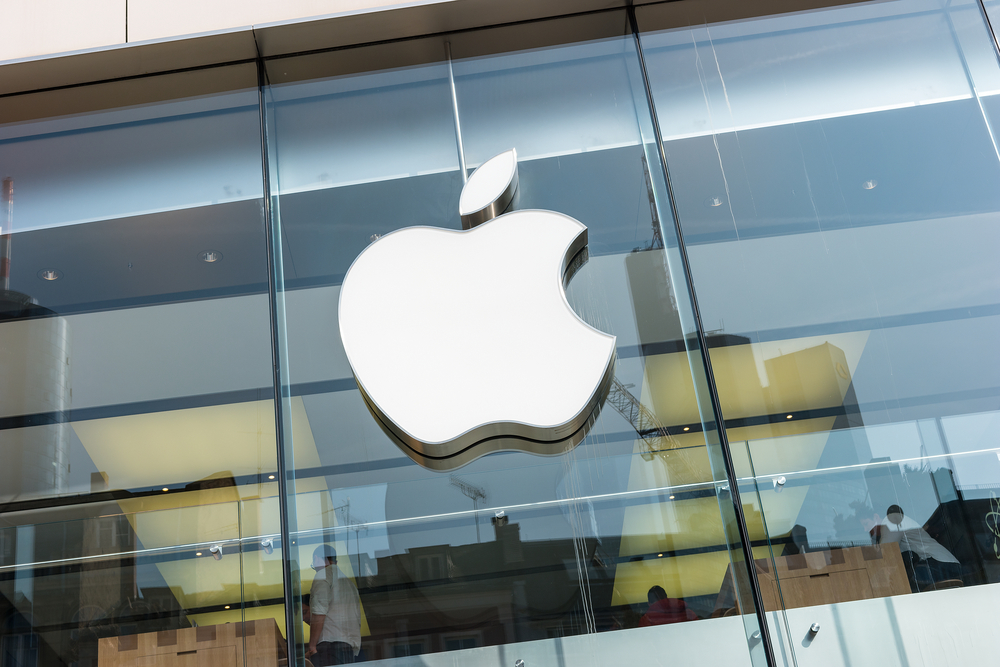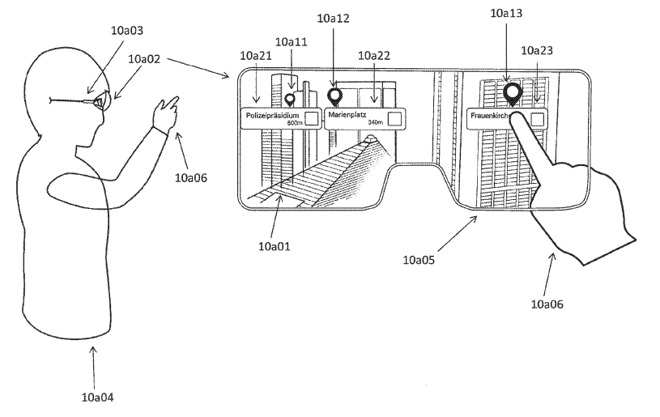Apple AR Navigation Could Come to iPhones, Smart Glasses
Google isn't the only company working on augmented reality (AR) maps. The U.S. Patent and Trademark Office (USPTO) has today granted Apple a patent related to a "method for representing points of interest in a view of a real environment on a mobile device and mobile device therefor." Or, in English, viewing the world through an AR lens.
Apple's technology would be able to recognize objects in the user's environment. It could then display information about known points of interest to suit a variety of needs. One example provided in the patent's introduction is "tour guidance for exploring the urban environment." Read: navigation.


Credit: Apple
Apple's patent also said the technology could be used inside homes, vehicles and other locations to identify more specific points of interest. This could prove especially useful when searching for a lost object, for example, or trying to highlight something about the room that someone might not notice otherwise.
As reported by AppleInsider, Apple applied for this patent in April 2017, and the USPTO today granted the application. That doesn't mean the company's on the verge of revealing new AR products, however, because companies often apply for patents related to technologies that might not ever see the light of day.
But this is still more kindling for rumors that Apple's working on an AR headset. Those rumors have persisted for years because of Apple's numerous acquisitions of AR-related companies, the introduction of ARKit in iOS and Apple CEO Tim Cook saying he's excited for AR.
This patent doesn't center on an AR headset--most of the focus is on using the technology via an iPhone or iPad--but it does leave open the possibility of such a device. The patent references a "semi-transparent display," like those used in smart glasses and other AR products, that could be used in tandem with this tech. And the following picture submitted with the application does seemingly point to something reminiscent of AR smart glasses.
Get Tom's Hardware's best news and in-depth reviews, straight to your inbox.
That setup certainly sounds a lot more comfortable than holding an iPhone or iPad in front of your face whenever you wanted to use this potential tool. Google sought to avoid that problem in Maps by advising people to use the AR feature sparingly.
Like we said: there's no guarantee that Apple plans to release an AR headset or even the AR navigation feature at all. But it does certainly bring more evidence that offering data via AR may be the next big step for technology-assisted navigation.

Nathaniel Mott is a freelance news and features writer for Tom's Hardware US, covering breaking news, security, and the silliest aspects of the tech industry.

